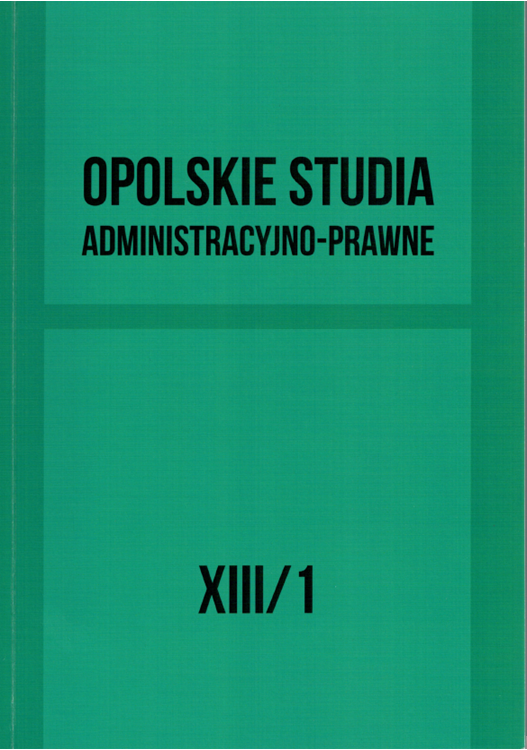Odpowiedzialność zespołu ratownictwa medycznego za pozostawienie zwłok pacjenta w miejscu zdarzenia – studium przypadku
The liability of members of an emergency response team f or leaving the corpse of a victim on the scene of a road accident – a case study
Author(s): Kinga Harlecka-FordeySubject(s): Law, Constitution, Jurisprudence, Criminal Law, Civil Law
Published by: Uniwersytet Opolski
Keywords: emergency response team; a medical doctor; declaration of death; death certificate; cult of memory of the deceased person
Summary/Abstract: The article refers to the issues related to the liability of members of an emergency response team for leaving the corpse of a victim of a road accident deceased in the course of an emergency first aid action. The author makes an attempt at answering the question if such a particular event may be considered to be violation of the provisions of the Act on the State Emergency Medical Services of 8 September 2006 (uniform text: Journal of Laws of 2013, item 757, as amended) or other legislation regulating the above-mentioned issues. The author raises also the question if leaving the victim’s corpse by members of an emergency response team on the scene of an accident, may constitute the basis for members of the deceased person’s immediate family to take a legal action for infringement of personal interests. Consequently the author examines the liability of members of an emergency response team, both in the aspect of their professional responsibility, as well as their civil-legal liability. However, the findings made by the author lead to the conclusion that the legislation applying in this respect gives no basis for holding members of an emergency response team liable. What is more, based on the author’s findings, it can be concluded that leaving the victim’s corpse on the scene may not make the basis for members of the immediate family of the deceased to bring a lawsuit for violation of their personal rights, i.e. the cult of memory of the deceased person. While the author raises the point that the provisions of art. 262 of the Penal Code (corpse desecration) may be the potential basis of the liability of the members of such emergency response teams. In the author’s opinion, in the case under consideration, behaviours of members of emergency response teams can be judged only in the penal law context.
Journal: Opolskie Studia Administracyjno-Prawne
- Issue Year: XIII/2015
- Issue No: 1
- Page Range: 45-59
- Page Count: 15
- Language: Polish

